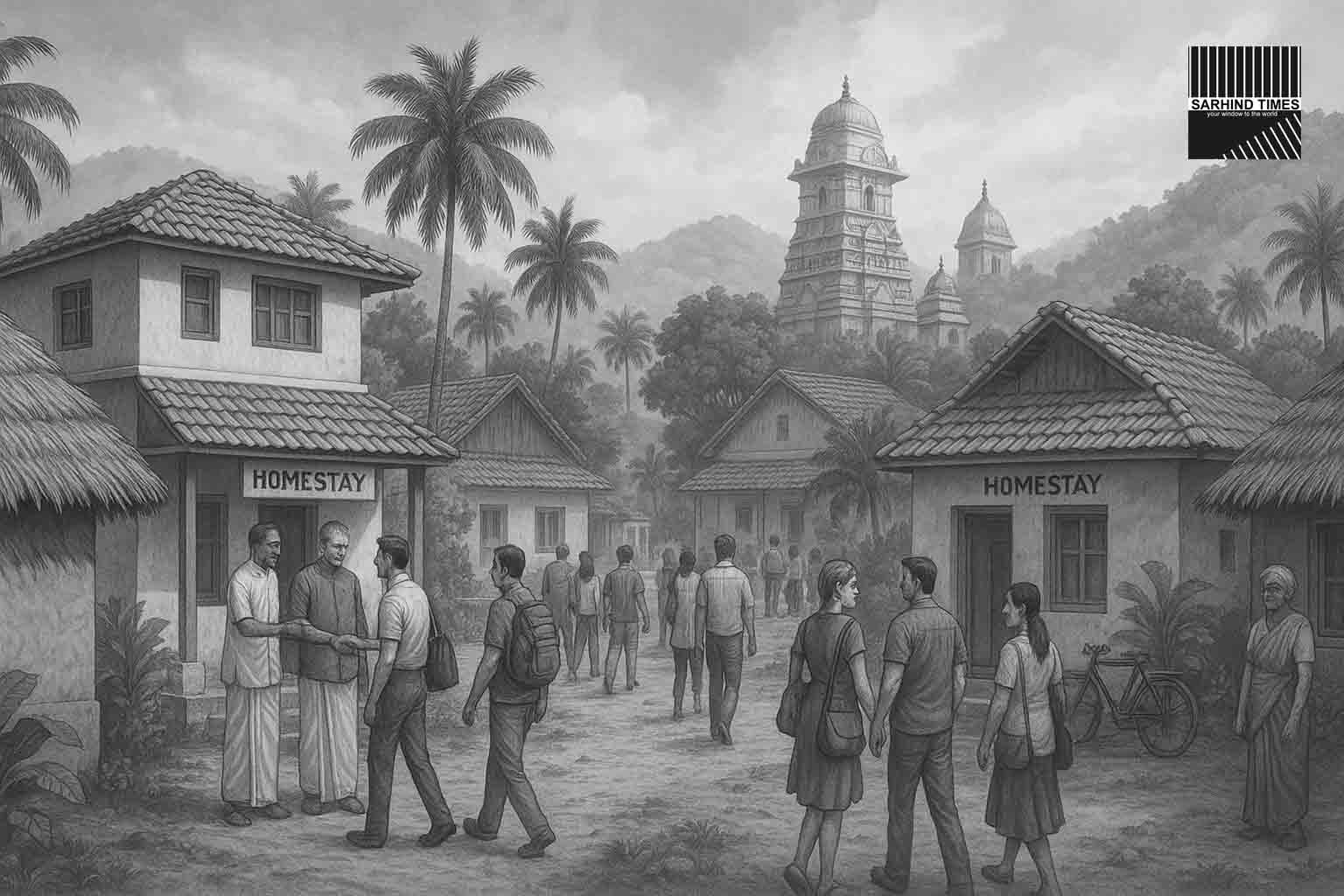Amaravati, September 29 (Sarhind Times Bureau):
Marking World Tourism Day, Andhra Pradesh Chief Minister N. Chandrababu Naidu announced a sweeping initiative to transform the state into a premier tourism destination. The government plans to facilitate 10,000 homestays and 50,000 hotel rooms over the next three years, backed by fresh policy frameworks, investments, and fast-track approvals.
The initiative, which already boasts commitments worth ₹10,600 crore in investment, aims to strengthen the state’s position on India’s tourism map while creating thousands of jobs across hospitality, transport, and artisanal sectors. Officials say the rollout will be executed through Public–Private Partnerships (PPPs) with a clear focus on eco-tourism, cultural circuits, and modern infrastructure.
A Tourism Vision for Growth
Announcing the policy in Amaravati, CM Naidu emphasized that tourism is not just an economic driver but also a way to showcase Andhra Pradesh’s rich heritage, diverse ecosystems, and cultural assets.
- 10,000 homestays: Formalized via a dedicated digital portal, ensuring safety, quality, and standardized offerings.
- 50,000 hotel rooms: Across coastal belts, temple towns, heritage hubs, and eco-tourism corridors.
- Eco-tourism circuits: To spotlight the Eastern Ghats, mangroves, bird sanctuaries, and tribal heartlands.
- Cultural circuits: Linking ancient temples, Buddhist sites, crafts villages, and coastal traditions.
Investment and Jobs
Officials reported that investment commitments worth ₹10,600 crore have already been attracted. Industry bodies forecast:
- Direct jobs: In hotels, homestays, tour operations.
- Indirect jobs: In transport, food processing, handicrafts, and retail.
- Skill development: New training initiatives to align local youth with global hospitality standards.
Economists project that this push could add tens of thousands of jobs annually, boosting both urban and rural economies.
Homestay Portal: A Game-Changer
The launch of a statewide homestay portal marks a major policy innovation. The platform will:
- Register homestay operators with clear guidelines.
- Enable tourists to book verified properties.
- Provide training modules for hosts.
- Ensure tax compliance and insurance coverage.
By formalizing the sector, Andhra Pradesh hopes to replicate models seen in Himachal Pradesh and Kerala, while adapting them to coastal and tribal contexts.
Industry and Community Response
Tourism Industry
Industry groups welcomed the clarity of the policy but stressed the need for:
- Last-mile connectivity to remote attractions.
- Incentives for sustainable construction.
- Skill-building programs to ensure quality service.
Local Communities
Communities in Araku Valley, Lambasingi, and coastal villages see opportunities in homestays, craft markets, and eco-tourism. However, some expressed concerns about cultural dilution and environmental pressures.
Challenges Ahead
- Infrastructure gaps: Many tourism hotspots lack reliable roads, sanitation, and healthcare.
- Environmental balance: Managing eco-tourism without harming fragile ecosystems.
- Competition: Neighboring states like Kerala and Tamil Nadu already have strong tourism branding.
- Execution speed: Delivering 50,000 rooms in three years requires coordinated approvals and investor confidence.
Expert Opinions
- Dr. S. Meenakshi, Economist:
“Tourism can be Andhra Pradesh’s sunrise sector if supported by training and infrastructure. The multiplier effect across crafts and rural livelihoods will be significant.”
- Arvind Rao, Hospitality Association:
“The homestay portal is a progressive step. However, connectivity—roads, rail, air—is the backbone of tourism.”
- Environmentalists:
“Eco-tourism must prioritize conservation. Without strict safeguards, forests and coasts may be over-exploited.”
Lessons from Global Models
- Bali, Indonesia: Balances tourism with local culture through community-run homestays.
- Kerala, India: Marketed backwaters and eco-tourism as niche attractions, creating a strong brand.
- Japan: Promotes heritage towns with standardized inns and cultural immersion programs.
Andhra Pradesh officials say they are studying these models to avoid pitfalls and ensure sustainable growth.
Outlook
With a strategic mix of homestays, hotels, eco-tourism, and cultural branding, Andhra Pradesh aims to increase its domestic and international tourist arrivals manifold. The state government has pledged continuous monitoring, investor facilitation, and citizen participation in shaping tourism as a pillar of its economy.
Conclusion
Andhra Pradesh’s ambitious tourism policy signals a decisive step toward economic diversification, job creation, and cultural promotion. If implemented effectively, the plan could transform the state into a vibrant tourism hub while preserving its ecological and cultural heritage.
The challenge lies in execution—ensuring that promises of homestays and hotels are matched by infrastructure, connectivity, and sustainable practices. For now, Andhra Pradesh has laid the foundation for a tourism-led growth story that could set benchmarks for other Indian states.
#AndhraPradesh #Tourism #Homestay #Hospitality #Jobs #TravelIndia #SarhindTimes #AndhraTourism






















+ There are no comments
Add yours